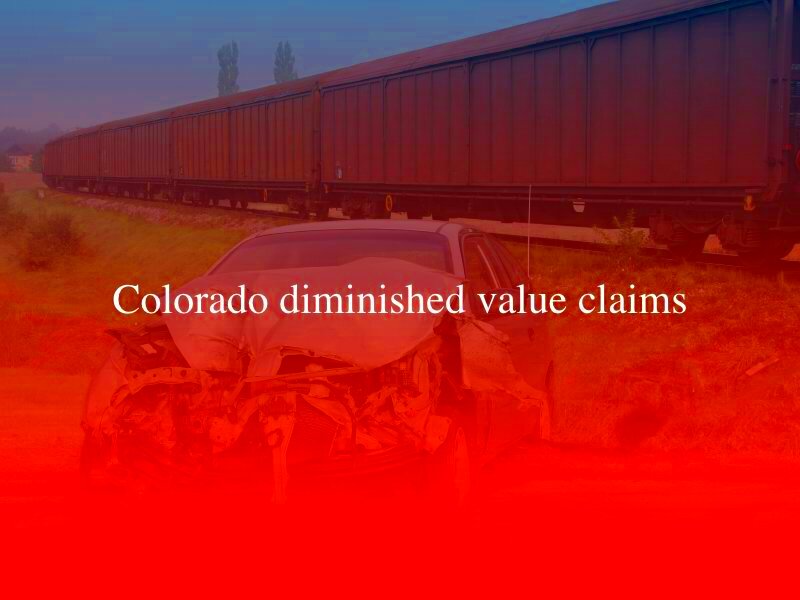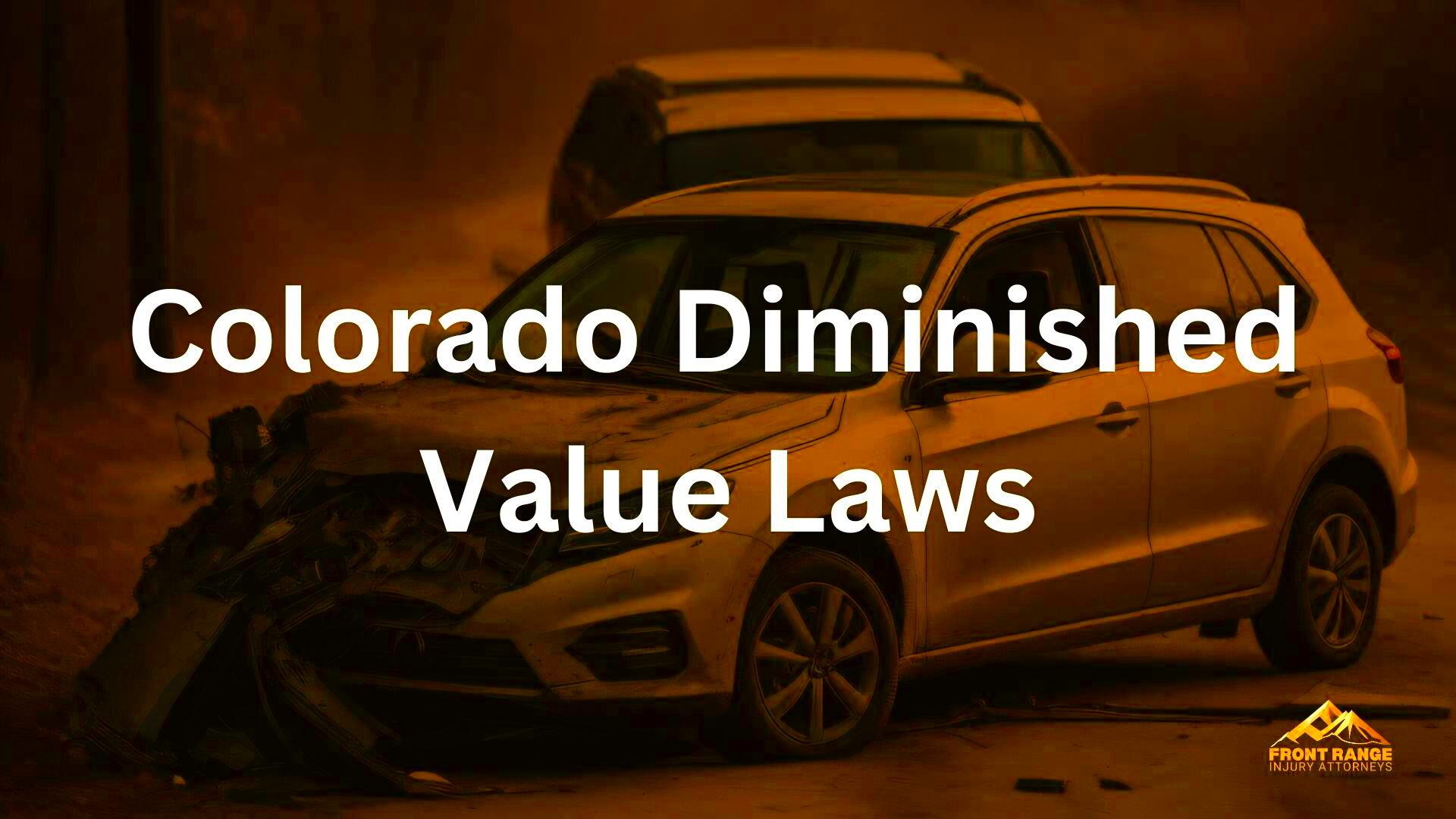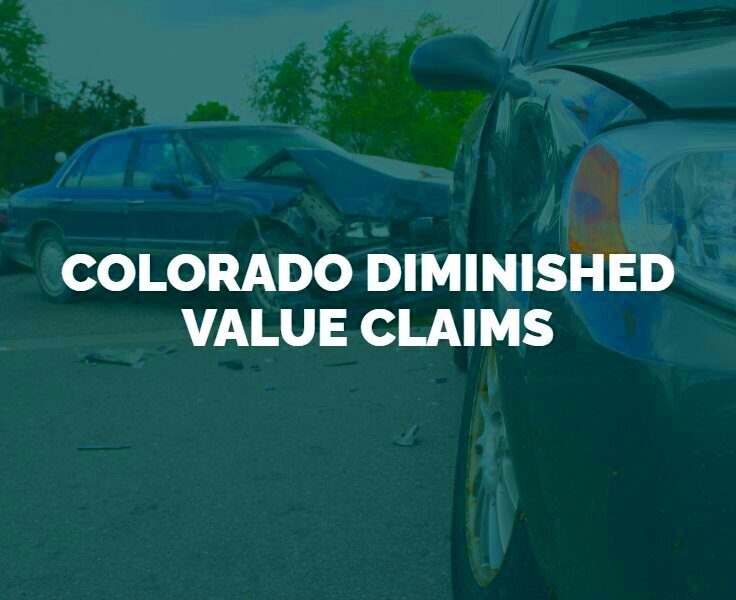Colorado Diminished Value Laws and What You Should Know
Picture this You get a car that you absolutely love. But then, out of the blue, someone crashes into you and your car gets repaired. Here’s the thing though no matter how well it’s fixed up it will never hold the same value it did before the accident. That’s where Colorado’s diminished value laws come into play. They aim to compensate for the decrease in market value of a vehicle after an accident. It’s a situation but understanding your rights can really make a difference.
How Diminished Value is Calculated in Colorado

So, the big question is how much is that loss actually worth? In Colorado figuring out diminished value isn’t as simple as you might think. It’s not just about the repair expenses but also how much the cars worth decreases after the repairs are completed. Here’s an analogy to help you understand it better.
- Pre-Accident Value: The market value of your vehicle before the accident.
- Post-Repair Value: The market value of your vehicle after repairs.
- Diminished Value: The difference between the two.
The evaluation usually includes an assessment by an expert who takes into account aspects such as the level of damage, the standard of repairs and the make, model and age of the vehicle. Its similar to haggling over the price of your car again but this time with an unfavorable twist. The frustrating part? Insurance providers often attempt to downplay this worth, which can feel like an additional hit, following the accident itself.
Filing a Diminished Value Claim: What You Need to Know

Submitting a diminished value claim in Colorado isn’t an everyday task and it’s normal to feel a bit daunted by the whole process. However with some preparation it doesn’t have to be a stressful experience. Start off by collecting all your necessary paperwork, such as repair bills, pictures of the damage and any correspondence you’ve had with the insurance provider. Having these pieces of information readily available can significantly boost your claim.
Next you should consider getting a valuation to determine the reduced worth of your car. This is important as it offers an objective view of how much your vehicle is actually worth after being repaired. Once you receive the appraisal it’s time to reach out to the insurance company. Be ready for some resistance they may contend that the repairs have returned the cars value but hold firm in your position.
If talks come to a standstill, feel free to reach out to an attorney. Often, having legal representation present can sway the situation in your direction. It may be overwhelming, but consider it as safeguarding your assets you wouldnt want to miss out on potential gains, would you?
Proving Diminished Value: Steps and Documentation

Ah, demonstrating diminished value can be quite a challenge. It’s like trying to scale a mountain without a clear route. You may find yourself dealing with the hassle of repair shops, insurance firms and appraisal professionals. However believe me when I say that it’s all worth it to ensure you receive fair compensation. Here’s a breakdown of how to build your argument step by step.
- Collect All Relevant Documents: Start by gathering every piece of paper related to the accident and repairs. This includes repair bills, photographs of the damage before and after the repair, and any correspondence with your insurance company. This is your evidence, your shield.
- Get a Professional Appraisal: Hire an independent appraiser to evaluate the diminished value of your vehicle. This person will provide an objective assessment of how much the accident has affected your car’s worth. The appraisal should be thorough, covering the extent of repairs and market conditions.
- Prepare a Detailed Claim: With your documents and appraisal in hand, prepare a detailed claim outlining your vehicle’s pre- and post-accident values. Be clear and concise, presenting your evidence in a structured format.
- Submit Your Claim: File your claim with the insurance company, including all documentation and the appraisal report. Follow up regularly to ensure your claim is being processed and address any requests for additional information promptly.
Keep in mind that this journey may seem challenging at first, but with persistence and attention to detail you’ll be able to find your way through it. Don hesitate to reach out to experts who are familiar with the process for assistance. Ultimately it’s about making sure you receive your due compensation after an accident.
Insurance Company Obligations Under Colorado Law

Insurance companies are a bit like that mysterious figure in a film whose intentions are not so obvious. Figuring out what they are required to do according to Colorado law can be as challenging as unraveling a storyline. However it is essential for your claim. In Colorado insurers have responsibilities regarding diminished value claims.
- Duty to Investigate: The insurance company is required to thoroughly investigate your claim. This means they must review all evidence and appraisals you provide and evaluate the diminished value fairly.
- Duty to Compensate: If your claim is valid, the insurer is obligated to compensate you for the diminished value of your vehicle. They cannot simply dismiss or undervalue your claim without justification.
- Duty to Communicate: Insurers must keep you informed about the status of your claim and any decisions made. Transparency is key, and they should respond to your inquiries in a timely manner.
If you ever get caught up in bureaucracy or feel like you’re being treated unfairly remember that there are ways to pursue fairness. The legal system is there to support you and knowing your rights can empower you to stand up for yourself.
Common Challenges in Diminished Value Claims
Starting a diminished value claim can feel like maneuvering through a labyrinth with its own set of twists, turns and surprises along the way. Here are challenges you may encounter and some suggestions on how to overcome them.
- Disputes Over Value: One of the biggest hurdles is disagreement over the car’s diminished value. Insurance companies might offer a lower amount than what you believe is fair. In such cases, having a detailed and professional appraisal can be your best defense.
- Insurance Company Pushback: Insurers sometimes resist paying out claims, arguing that the repairs restored the vehicle’s value. Persistence and a clear presentation of your evidence can help overcome this resistance.
- Documentation Issues: Incomplete or insufficient documentation can derail your claim. Ensure you keep thorough records of everything—photos, repair bills, appraisals, and correspondence. This documentation is crucial to support your case.
- Complex Legal Jargon: Understanding legal terms and insurance policies can be daunting. It might be worth consulting with a lawyer who specializes in diminished value claims to help you navigate these complexities.
While these obstacles may be exasperating, you can navigate through them with thorough planning and a touch of determination. Stay updated, maintain your documents and don’t hesitate to seek guidance if necessary. Your dedication can significantly impact securing a just resolution.
Your Rights When Negotiating with Insurers
Dealing with insurance companies can be like trying to budge a rock. Speaking from personal experience I get how stressful it can be. However it’s important to remember that you have rights and it’s vital to hold your ground to avoid being taken advantage of. Here are some tips on how to navigate these challenging situations.
- Right to Fair Compensation: You are entitled to a fair evaluation of your claim. This means the insurer must consider all evidence you provide, including the diminished value of your vehicle as assessed by an independent appraiser.
- Right to Transparent Communication: Insurers must communicate clearly and openly with you about the status of your claim. They should provide explanations for any decisions they make and respond to your inquiries in a timely manner.
- Right to Appeal Decisions: If you disagree with the insurer’s decision, you have the right to appeal. Document your objections and provide additional evidence to support your case during the appeal process.
- Right to Legal Counsel: Don’t hesitate to seek legal advice if negotiations aren’t going as planned. An attorney specializing in diminished value claims can offer guidance, help you understand your rights, and represent your interests.
Negotiating can be tough but being aware of your rights boosts your confidence. Tackle each phase with a mindset and be ready to stand up for yourself. From what Ive seen determination and information usually result in more favorable results.
Frequently Asked Questions About Colorado Diminished Value Claims
When it comes to claims for diminished value, many individuals tend to have inquiries. Drawing from my experience and conversations with others facing situations, here are some of the frequently asked questions along with their responses.
- What is diminished value? Diminished value refers to the reduction in a vehicle’s market value after it has been repaired following an accident. Despite high-quality repairs, the car often loses value due to its accident history.
- How do I know if I can file a diminished value claim? If your vehicle has been involved in an accident and you believe its value has decreased, you might be eligible to file a claim. It’s best to consult with an appraisal expert to assess the loss and determine if a claim is appropriate.
- How long do I have to file a diminished value claim? In Colorado, you generally have up to three years from the date of the accident to file a claim. However, it’s wise to start the process as soon as possible to avoid any complications.
- What if my insurance company denies my claim? If your claim is denied, you can appeal the decision. Gather additional evidence and consider consulting with a legal expert to help make your case stronger.
While these frequently asked questions address the essentials keep in mind that every scenario is different. If you find yourself uncertain seeking guidance can offer personalized insights and guidance based on your specific situation.
Conclusion: Protecting Your Rights and Vehicle Value
Handling diminished value claims can be a challenging process but with the right strategy you can navigate through it successfully. This involves grasping the calculations filing a claim negotiating with insurance companies and tackling common obstacles. Staying well informed is your key advantage. Keep in mind that this is not just about safeguarding the worth of your car but also upholding your consumer rights.
Maintain orderliness, keep thorough documentation and dont hesitate to seek guidance when necessary. Your vehicle, an asset of yours warrants fair treatment just like you do. Ultimately determination and wisdom will aid you in obtaining the justice you rightfully deserve. Stay cautious on the road and advocate passionately—both in your interactions with insurance companies.


